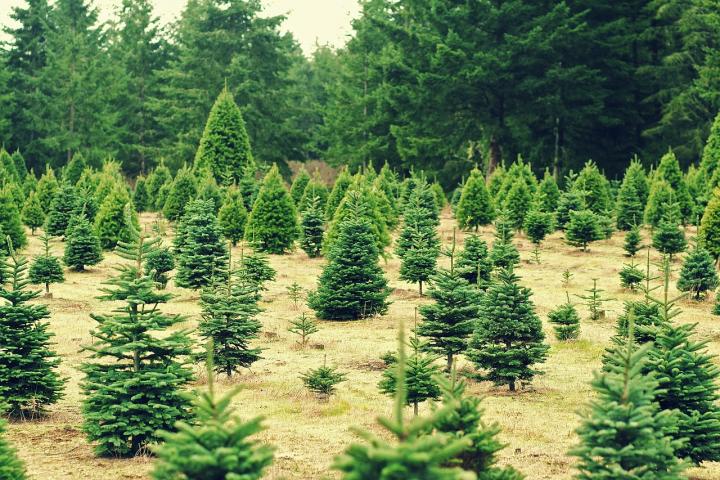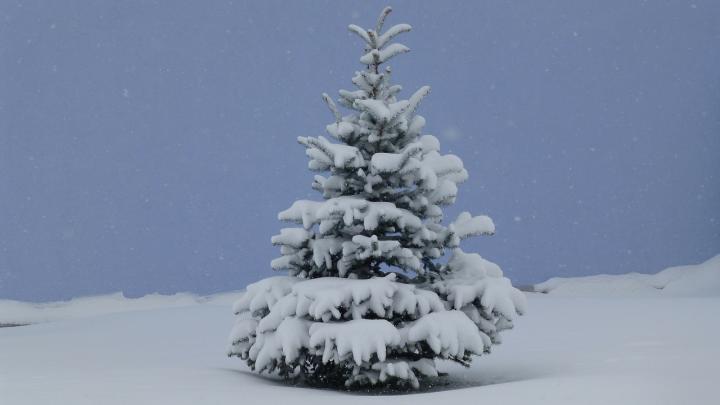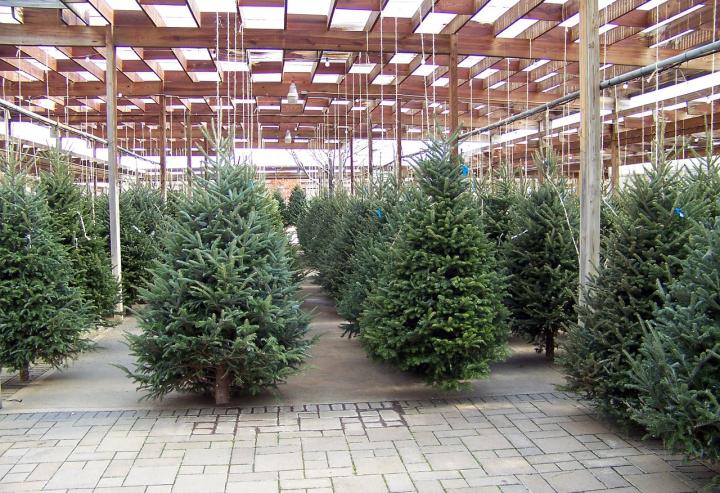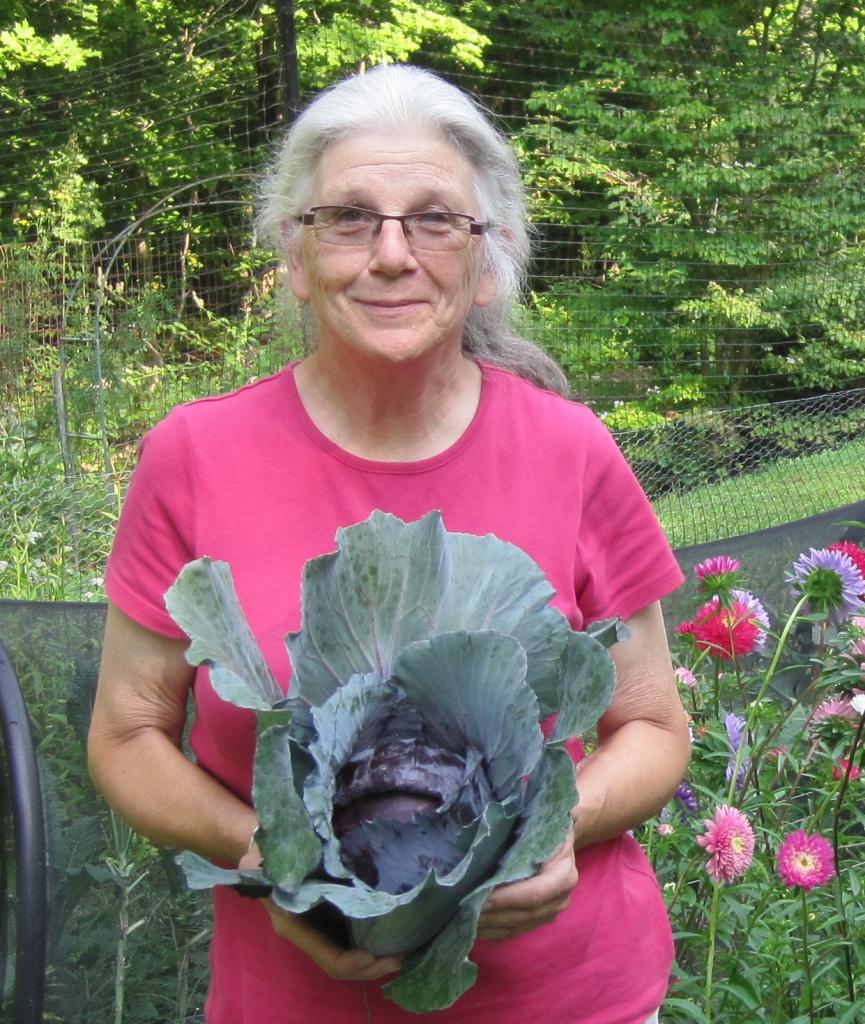
Photo Credit
Lori Sparkia/Shutterstock
Subhead
The Benefits of Growing Christmas Trees
More Like This
I always bought a real tree when my kids were here. We enjoyed the process of browsing and finding the "perfect" tree. The first Christmas after my kids were gone, I found that I didn't enjoy the tree-finding and decorating process. So I've had an artificial one since then. I had a nice one, stored it in a Christmas tree bag in my garage, but we experienced a rat problem. The rats were eliminated, but when I took out my Christmas tree, the bag and the tree had been gnawed and destroyed. Now I have a small artificial tree, but opted not to put it up this year because Fearsome Freddie, my cat would be all over it!
We always used fresh trees and after the holiday, put them up outside, tied to a diciduous tree, and decorated with edibles for out wild creatures throughout the winter. In the spring, with most of the needles gone, the tree would go into the raised bed or LARGE container of soil to grow peas and pole beans and morning gloies on. In the fall it became kindling and the ashes from our woodstove went back into the garden to sweeten the soil. Then, when our kids were about Jr. High age, they got upset at seeing the tree "go away" even though they knew it was helping the environment and our wild friends. After much begging on their part, we bought a very beautiful artificial (and expensive!) tree. We have cared for it carefully for years. My kids are in their 50's and the tree has lasted 40 years with care, careful cleaning and proper storage. People still think it's a real tree when they first see it and only realize it's not when they have a good, close look. There are certainly pros and cons to each side of the question. I won't condemn or criticize anyone for their choice of tree. It's such an individual decision.
Since our first Christmas in 1986, my husband and I always got a real tree-lot tree. Most were decent, some were "meh", depending on the year. In 2004 we discovered Noble firs, which hold the heavier ornaments more nicely. We found a tree lot run by a couple who owned a tree farm in up Oregon (we're in Southern California). They brought their trees down Thanksgiving weekend, followed by a second load a few weeks before Christmas, which was when we always bought our tree. They got to know us and our preferences, so there would be 2 to 3 trees tagged for us to choose from in this second load. Their trees were always cut within a few days of leaving Oregon, so they were very fresh. They were still fresh when we put them out for the community recycling truck after New Year's. It was so sad. The couple retired and we were forced to go back to the other tree lots. We were spoiled by having near perfect reasonably priced Christmas trees and were shocked at the price and poor quality at the other tree lots. So 5 years ago, we ended up buying a very nice artificial tree that looks very real until you get close and touch it. We always said we would never have an artificial tree, but never say never, right?! We found some pine scented sticks that we hang inside of it, so we still have a bit of pine smell. I still miss having a real tree, except for the needle mess!
Our local animal sanctuary puts Christmas trees after they are used at Christmas in the goat enclosure for goat enrichment. They are able to digest the needles and drag the trees around for fun!
I bought a pear pineapple tree do I need to get another to pollinate it or is there another way to pollinate it?
This variety is supposed to be self- fertile, but most trees bear better with a second variety such as a Flordahome or Hood Pear tree. To hand pollinate fruit trees, take a Q-tip or paint brush. Dap the center and then dab into other blossoms. You may need a ladder. This will work if self fertile though you will get better yield and quality fruit whenever you cross-pollinate with another pear variety in the same pollination group.
interesting; question: which Pine / Evergreen Trees or Boughs have the most permeating pine tree scent for the house?
I recently saw an interview with a tree farmer who suggested that once you get your tree home, you place it in a bucket or stand filled with warm water as this will dissolve any sap that has scabbed over the cut trunk and make it easier for your tree to absorb water. After that just use room temp water.
It's interesting to hear this information from a tree grower. My husband and I used to buy our cut Christmas trees directly from a grower in Oregon. Even though the trees that we bought were always harvested within two weeks of when we purchased them, he told us to always take off at least 1 inch of the stump when we got it home and immediately put it in warm water. He told us that the dry sap will stay on the existing cut, blocking the uptake of water. I believe this to be true because, if you think about it, sap won't come off of your hands with just plain water. Our trees were always still fresh a week after New Year's when they went to the recycler. Too bad this grower retired.
Thank you for your info on the care of Christmas trees. I buy a cut farsar fir from my local nursey, place the bundled tree in my unheated garage for about 2 to 3 weeks before I bring it into my home. Should I cut the tree and place in water while in the garage or wait until I bring it into my home? Thank yiou.
- « Previous
- 1
- 2
- …
- 10
- Next »













Comments